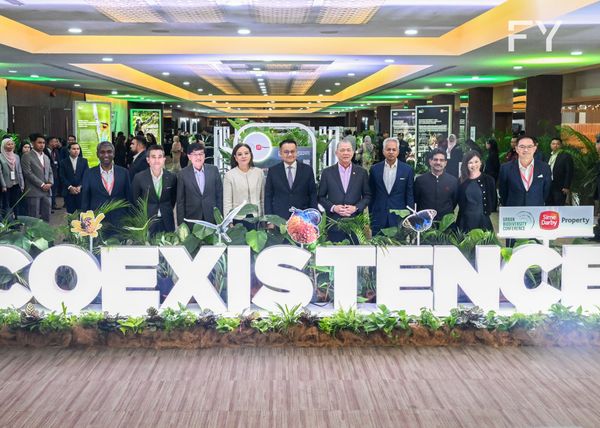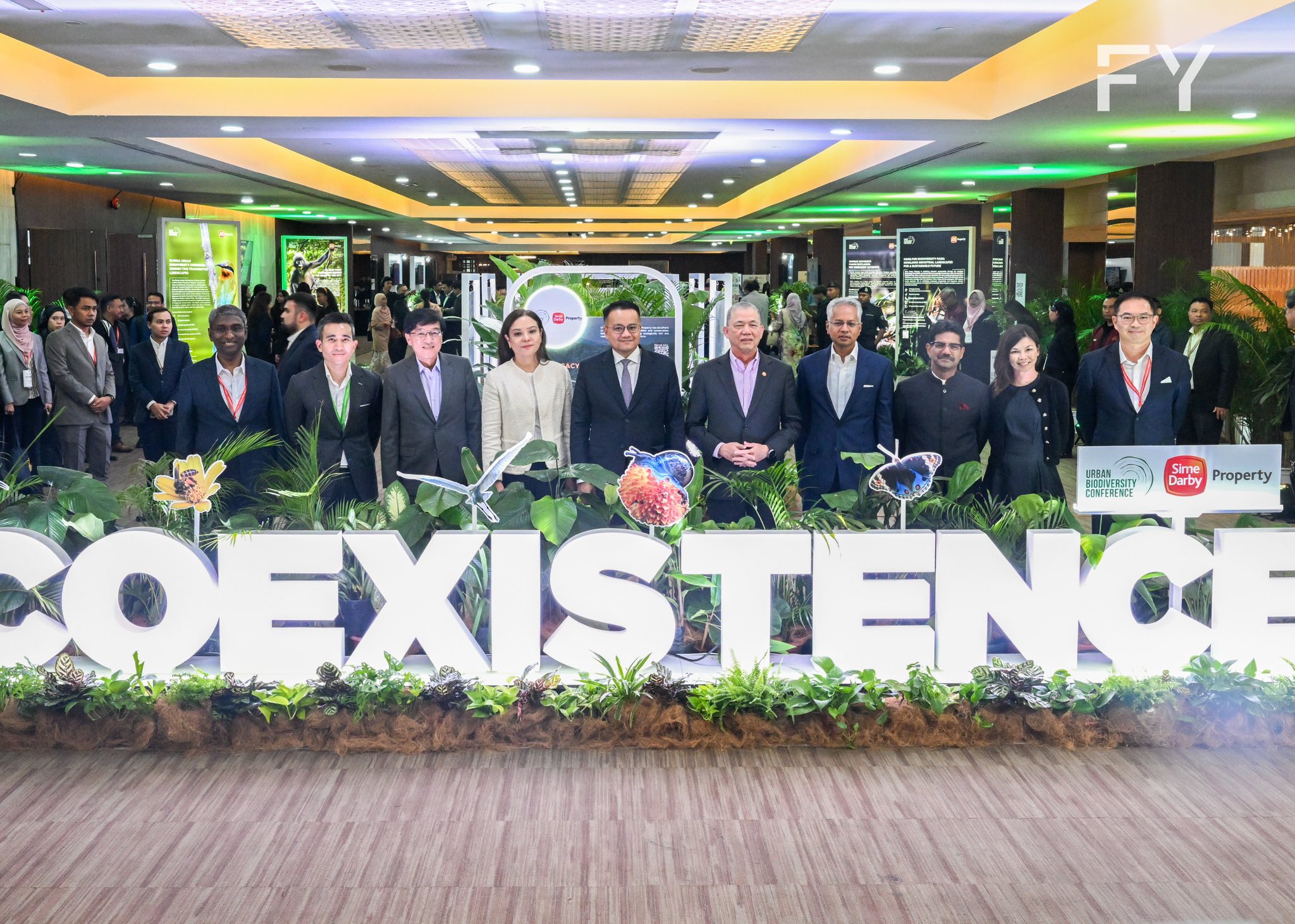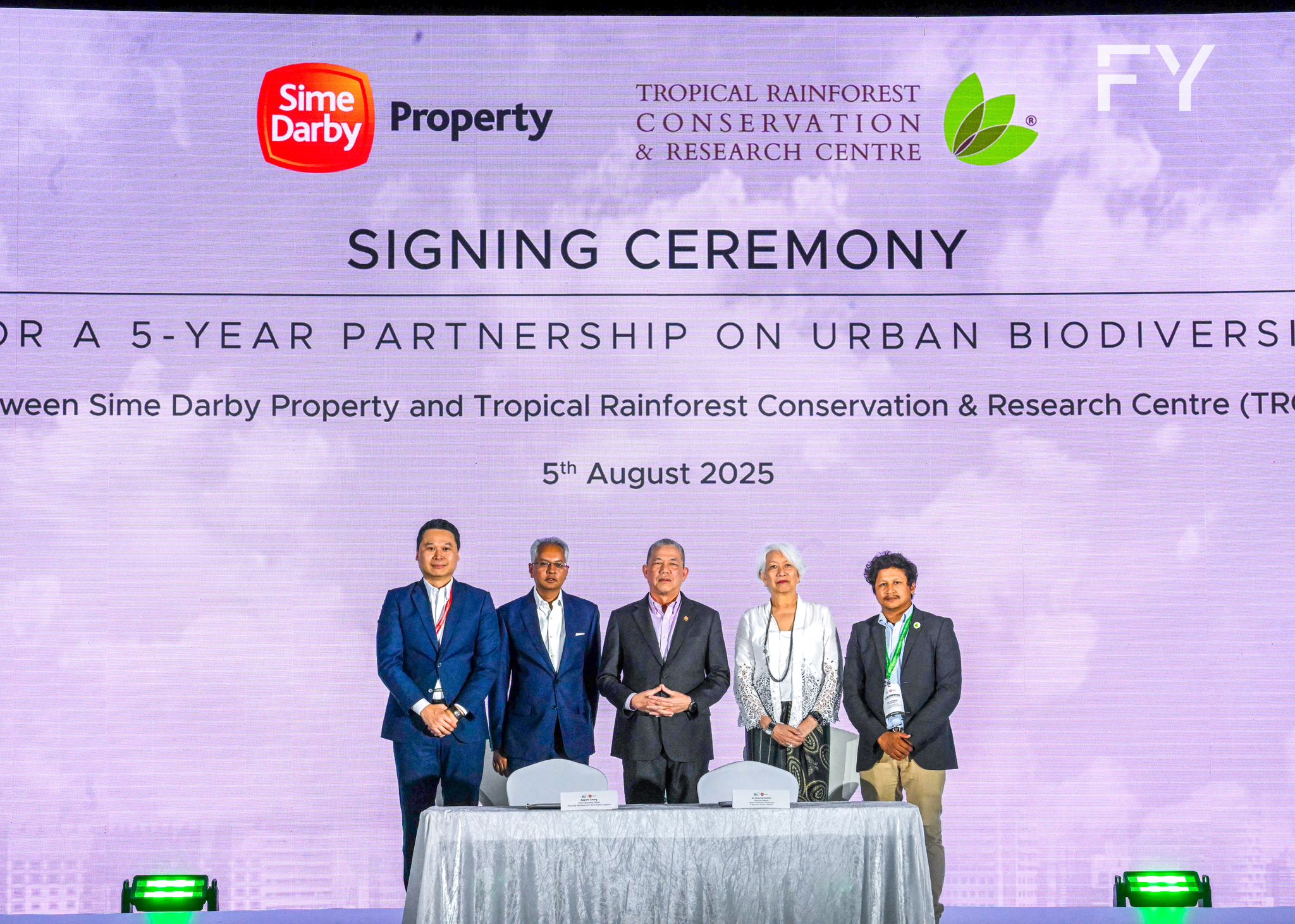KUALA LUMPUR, Aug 5 — Investment in urban biodiversity can yield not only economic returns but also contribute to environmental sustainability and the social well-being of communities, said Deputy Prime Minister Datuk Seri Fadillah Yusof.
Adopting a sustainable approach to urban development can help create a greener, cleaner environment, thereby enhancing residents’ quality of life while also attracting investors and tourists.
“When we move towards urban biodiversity, we consider various aspects, including the economic perspective. Our investment is not solely for financial returns, but also for the benefits it brings to the environment.
“Ultimately, the benefits are returned to the people living there, as it will result in cleaner air,” he told the press after officiating the closing ceremony of the Urban Biodiversity Conference (UBC) 2025 at the Sime Darby Convention Centre today.
Fadillah added that developing more green spaces and recreational parks in urban areas can potentially enhance residents' social well-being, in line with the goals of sustainable development.
The Raja Muda of Selangor Tengku Amir Shah graced the conference, which began at 10am.
Meanwhile, Fadillah, who is also the Energy Transition and Water Transformation Minister, noted that property values could also rise when developments are environmentally friendly and incorporate biodiversity considerations in urban planning.
“Return on investment will improve, as people are more likely to buy. Not just houses, but homes — real places to live, where the environment is cleaner and greener.
“A better environment will undoubtedly yield higher returns, as people are willing to pay a premium for spaces that are more environmentally friendly, user-friendly, and occupant-friendly,” he said.
The UBC 2025, themed ‘Coexistence: Shared Environments for Balance and Resilience’, is organised by Sime Darby Property. It aims to promote the integration of biodiversity into urban planning through cross-sector collaboration, while reinforcing the commitment to sustainable development and enhancing community well-being.
Earlier, the Deputy Prime Minister witnessed the signing ceremony of the five-year partnership on Urban Biodiversity Agreement between Sime Darby Property Berhad and the Tropical Rainforest Conservation and Research Centre (TRCRC), aimed at strengthening efforts to conserve urban biodiversity in Bandar Elmina.
Sime Darby Property was represented by its chief operating officer for Township Development Appollo Leong, while TRCRC was represented by its executive director Dzaeman Dzulkifli.
The strategic partnership reflects a shared commitment by both parties to adopt an ecologically-based approach to urban development, aligning with the nation’s environmental priorities and global biodiversity targets.
During a fireside chat moderated by Bullhound Capital managing director and head of Southeast Asia Shahril Hamdan, Fadillah cited Putrajaya as a model for sustainable urban design, and advocated for the creation of similar biodiversity-focused conservation zones in other cities.
He also commended Malaysian youth for their significant role in environmental preservation, especially their contributions to the country’s achievement of planting 100 million trees.
Fadillah, in his speech at the convention, emphasised that urban biodiversity aligns with the Madani Government's core values of sustainability, compassion and innovation, which form integral components of the national development framework.
He further reaffirmed Malaysia’s commitment to global environmental goals through key national policy frameworks, including the Fourth National Physical Plan, the National Policy on Biodiversity 2022-2030, and the National Energy Transition Roadmap.
“To the captains of industry and the private sector — go beyond corporate social responsibility. Embed biodiversity into your core business strategies, champion concepts such as Biodiversity Net Gain, and invest in green supply chains,” he urged.
As Malaysia chairs Asean this year, Fadillah also noted that the country will spearhead regional sustainability efforts, via initiatives such as the Asean Smart Cities Network Action Plan 2026-2035 and the Asean Biodiversity Plan 2024, with the goal of fostering inclusive and climate-resilient urban ecosystems.
During a fireside chat, moderated by Bullhound Capital managing director and head of Southeast Asia, Shahril Hamdan, Fadillah cited Putrajaya as a model for sustainable urban design, and advocated for the creation of similar biodiversity-focused conservation zones in other cities.
He also commended Malaysian youth for their significant role in environmental preservation, especially their contributions to the country’s achievement of planting 100 million trees.
Fadillah, in his speech at the convention, emphasised that urban biodiversity aligns with the Madani Government’s core values of sustainability, compassion and innovation, which form integral components of the national development framework.
He reaffirmed Malaysia’s commitment to global environmental goals through key national policy frameworks, including the Fourth National Physical Plan, the National Policy on Biodiversity 2022-2030, and the National Energy Transition Roadmap.
“To the captains of industry and the private sector — go beyond corporate social responsibility. Embed biodiversity into your core business strategies, champion concepts such as Biodiversity Net Gain, and invest in green supply chains,” he urged.
As Malaysia chairs Asean this year, Fadillah also noted the country will spearhead regional sustainability efforts, via initiatives such as the Asean Smart Cities Network Action Plan 2026-2035 and the Asean Biodiversity Plan 2024, with the goal of fostering inclusive and climate-resilient urban ecosystems.





